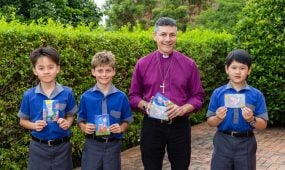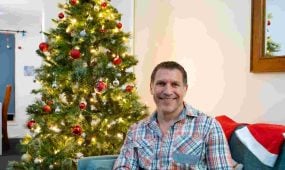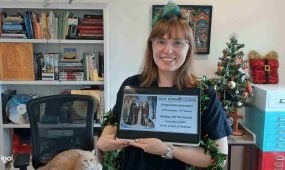“The end of the war — coming home”
Dates & Seasons
“World War I was supposed to be the war to end all wars, but this Remembrance Day we are again confronted by the utter sadness of war around us,” says Principal Chaplain, The Ven. Rob Sutherland CSC
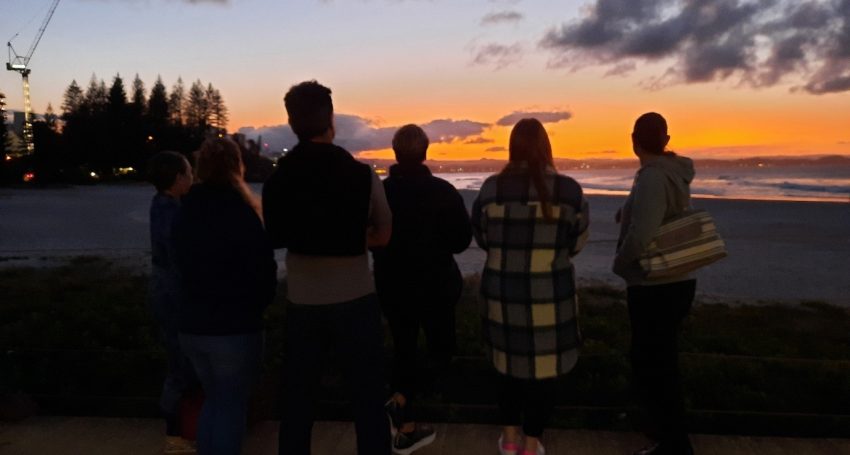
World War I caused horrendous human destruction and suffering inflicted by nations and armies — by human beings. In this war, humankind used new industrial weapons, including machine guns, poisonous gas and rapid-firing artillery to inflict new kinds of death, injury and suffering. World War I was supposed to be the war to end all wars, but this Remembrance Day we are again confronted by the utter sadness of war around us.
Australia, to its great credit was keen to stand up to what it saw as injustice in this first world war. People volunteered and we sent them to war. One hundred and ten years later I don’t know if our nation’s decisions were right or wrong, but I am proud of those who were prepared to lay down their lives in service of their — our — nation and beliefs. This service was motivated by lots of things, but primarily love — the sort of love that Jesus spoke of when he said, “greater love has no one than this, to lay down one’s life for one’s friends”. In war, every death or serious injury involves both the individual, as well as the person’s whole family, friends and community.
Having served with young Australian service women and men on numerous operations in several countries overseas, I am proud of the courage, integrity, compassion and mercy that I have seen in their service. We can’t say it often enough for we owe these young people and their families a great debt, but this, going to war and serving in war is the story of Anzac Day. Remembrance Day is about coming home because it is about people — Defence force members who have died in the line of duty in wars, conflicts and peacekeeping missions, and also about those who are struggling with war’s effects.
Advertisement
Australia selects our finest — our training is world class and our equipment now is the best. We prepare and we do well, but going to war hurts. Even peacekeeping operations are both dangerous and can be deeply traumatising.
Australian infantry commander Brigadier Mick Moon says, “Everyone comes home with dents in the soul.” This is both a good thing because good people should be affected by what they encounter in war and a tough thing because it makes coming back home really complicated.
When we are away from home, all that we think about and long for is home. Home might be a country, a town, a community, a beach or a mountain or it might be a house or a family — whatever it is, it’s what we long for, where we long to be loved.
Preparing for and going to war are emotionally charged and physically hard, but actually relatively easy — coming home from war is much harder. Veterans are physically, mentally and spiritually changed by their war experience, and families and communities are both changed and ill-equipped to receive veterans back “home”.
Advertisement
Of course, homecoming can be successful; love and time and more love and more time are very good healers, but often the people whose love we crave even though they love us can’t give us what we need. How can families handle sleeplessness, screaming nightmares, anger, crying, self-harm and suicide?
Our God speaks frequently into this darkness of spirit; speaking directly to those who know the “valley of the shadow of death”. Jesus speaks directly to and also heals wounded veterans. In Mark 5.1-20, Jesus encounters a man — whom some Biblical scholars believe to be a Roman legionnaire, a retired veteran — with many demons from his service, demons whom he chooses to call the familiar term “Legion”.
There is a vital role for our Church to help veterans who can no longer live at home, who scream out during the night and who may self-harm or consider suicide. This starts by making veterans’ families feel welcome and being willing to listen to them and understand the complex issues they face.
Veterans’ chaplains and the Warrior Welcome Home program are bringing God’s healing to veterans so that they can find peace and “go home” to their families and friends.
Related Story
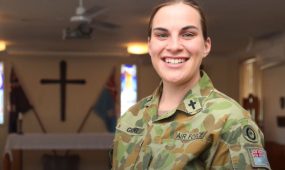 Video
Video
Defence Sunday
As chaplains we can produce small group resources and studies, refer veterans to services and lend an ear; however, we need many more churches that are willing to be places where veterans can find God’s love and peace so they can return, and be at, home.
Editor’s notes: Principal Chaplain, The Ven. Rob Sutherland, CSC joined the Army in 1974 as an Infantry Officer. He has since served for 25 years as an Army chaplain. Rob currently leads the Veterans’ Chaplaincy Pilot Program for the Department of Veterans’ Affairs, is an Archdeacon to the Primate and leads Warrior Welcome Home, a program to help veterans and families recovering from the effects of war and Defence service.
Immediate support is available for those who may be distressed by phoning Lifeline 13 11 14; for Veterans and Families from Open Arms 1800 011 046 and in a crisis call 000

